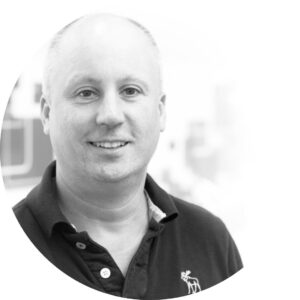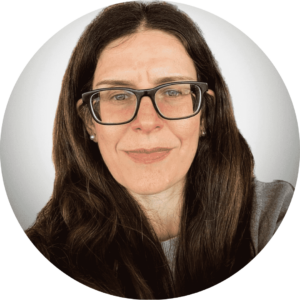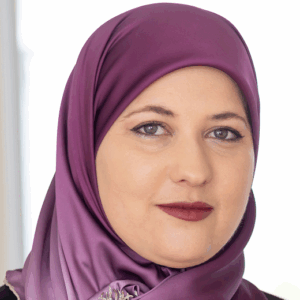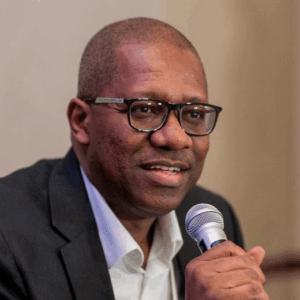Financing and Delivering Resilient Infrastructure
- Planning process improvements for resilient infrastructure
- Nature as a solution to enable infrastructure resilience
- Financing and funding innovations in resilient infrastructure
Applications close on Tuesday, 28 October 2025
Overall theme
Today, $2.9 trillion a year flows into infrastructure, but much of this investment fails to factor in physical climate risks. The World Bank concludes that infrastructure disruption costs at least $390 billion annually across emerging and developing economies, yet the extra cost of building resilience is only 3% of the overall investment ($87 billion), leading to an overall net benefit of $4.2 trillion.
Problem statement: Planning
Idea Starter
- How can you use Earth Observation, Geospatial Data, Data Fusion, and LLMs to surface insights that enable a faster, more collaborative, and transparent planning process?
- How can you use Agentic AI to create autonomous agents that can query disparate data sources via APIs, combine the responses, and take the next action?
- For example: create an agent that retrieves data from local planning systems, accesses a central planning system, and then combines the information to create a geospatial map for citizen consultation.


Problem Statement: Nature
Idea Starter
- Can you flip this on its head, turning nature into an asset that lowers costs, reduces complexity, and measures real-world impact?
- For example, identify ecosystem services such as flood attenuation that protect built assets or provide business/state resilience, and then develop a business model that distributes existing budgets differently to deliver a wider, cross-sectoral benefit.
Problem Statement: Financing
Idea Starter
- The financial services industry needs the organisations it finances to have a source of funds that will repay the finance at a rate of return matching the risk of the investment. Often, this is sourced via consumer charges or taxation. What additional sources could be identified?
- For example, identify ecosystem services like natural cooling or heating that protect people and property. Can these services generate carbon and biodiversity credits to create receipts, enabling the financing of this transition?


Why Attend?
Nexus of forces
Levers of change to be utilised
Resources
Outcome
Who Will Attend?
The Sustainable Finance Live Hackathon is designed for a diverse mix of professionals with a business mindset and technical expertise. You will collaborate with peers and mentors from a wide range of fields, including:
- Financial Services: Heads of Sustainable and Impact Investing, Risk Managers, and Entrepreneurs.
- Technology: Technologists, Consultants, Heads of Innovation, Product Managers, and Green Impact Advisory.
- Civil Engineering & Planning: Designers, Planners, and Builders.
- Public Sector: Policymakers, Regulators, and Academics.
- Cross-Industry: Professionals from Corporates, Utilities, and NGOs.

Key Dates
28 Oct
Applications close
31 Oct
1 Nov
1–11 Nov
- Virtual Hackathon with dedicated mentoring sessions.
- Mentoring: Multidisciplinary teams of subject-matter experts (SMEs) will be available to work with the teams.
4 Nov
11 Nov
Submissions are due
12 Nov
Hackathon for Resilient Infrastructure at the Sustainable Finance.Live Conference 2025
FAQs
A hackathon is a collaborative event that brings together individuals with a passion for innovation. Be it for nature, finance, resilient infrastructure, equitable society, or technology, participants from all backgrounds—including civil servants, business people, project managers, programmers, developers, designers, and other enthusiasts—work together to create a functional product or solution within a specified timeframe.
The theme or challenge is often centred around innovation, creativity, and problem-solving. By participating, you can learn new skills, connect with other professionals, and showcase your abilities to build new technology and industry solutions.
- The hackathon provides a unique opportunity to learn something new as you collaborate with other industry experts to find solutions.
- Participants gain access to exclusive datasets, fintech APIs, and a Digital Sandbox via NayaOne’s platform to build their solutions.
- A hackathon can be a challenging experience that pushes you out of your comfort zone and helps you make new professional discoveries. The pressure of collaborating allows you to examine your abilities from a fresh perspective and is an excellent environment for breakthroughs.
- While not all hackathons result in a tangible innovation, you will be part of something special.
- These events are also fun and fulfilling, offering a great way for experts and managers to work together towards a common goal in a brand-new environment.
Mentors come from various disciplines, including ESG, sustainability innovation, data science, AI, finance, civil engineering, and nature-based solutions. They provide a range of insights that you can use to build your projects. Their skills include data, AI, Agentic AI, APIs, solution design, and more.
Mentors can come from a variety of backgrounds, including industry experts, experienced developers, designers, and business professionals. They provide guidance and support, answering questions, helping troubleshoot problems, and offering advice on best practices. Mentors are an invaluable resource, especially for those new to hackathons or with limited experience in a particular area.
By working with them, you can learn new skills, overcome challenges, and ultimately create better, more innovative projects.
Meet Our Judges and Mentors

Nigel Greenhill
Hill Stone Wood

Richard Conway
Elastacloud

David Gristwood
Freelance Technologist

Sarah Sinclair
Co-Labs Global

Darshna Shah
Elastacloud

Chryssi Chora
TerraEvra

Sadia Ahmed
Deloitte UK

Anusha Shah
Arcadis

Andy Bennet
Growth Studio

Priyank Patwa
Deloitte UK

Isabelle Chatel de Brancion
Ordnance Survey Geovation

Ana Raposo
ESA European Space Agency

Jude Umeh
SalesForce

Priyanka Naik
Fintech Industry Expert

Lay Durafe
SalesForce

Jiri Fejgl
SalesForce
Accelerator Partners

Andy Bennet
Growth Studio

Sarah Sinclair
Co-Labs Global

Ana Raposo
European Space Agency

Isabelle Chatel de Brancion
Ordnance Survey Geovation

Mike Moseley
Industry Innovation Partnership (i3P)


